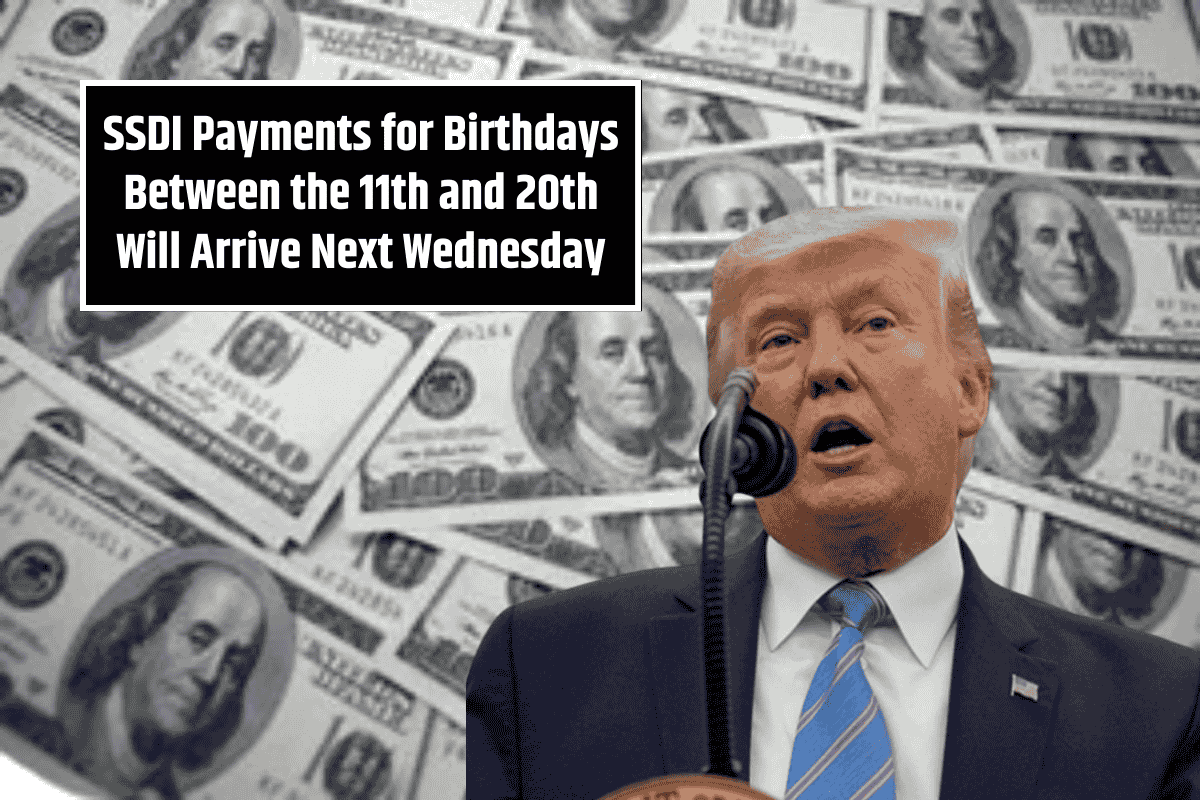If you’re receiving Social Security Disability Insurance (SSDI), knowing when to expect your payment each month is essential. The Social Security Administration (SSA) has a system in place that divides payments over three Wednesdays each month.
For July 2025, here’s what you need to know about your payment dates and other important changes.
Key SSDI Payment Dates for July 2025
For SSDI recipients, the payment dates depend on when your birthday falls. Here’s the breakdown for July:
Birthdays between the 1st and 10th: You received your payment on Wednesday, July 9th.
Birthdays between the 11th and 20th: Your payment is arriving on Wednesday, July 16th.
Birthdays between the 21st and 31st: You will receive your payment on Wednesday, July 23rd.
For individuals who started receiving SSDI benefits before May 1997 or those who qualify for both SSDI and Supplemental Security Income (SSI), payments were already made on July 3rd. For instance, if your birthday is on the 15th, your deposit should have been made on July 16th.
Average SSDI Payment in 2025
The typical SSDI payment in 2025 is about $1,580 per month. This figure represents the average amount most recipients receive based on their disability and previous work history. Comparatively, retirees under Social Security typically receive more, with an average monthly amount of $2,002.
It’s also important to note the maximum possible SSDI payment is $4,018, while retirees can receive up to $5,108 in monthly benefits. These differences exist because SSDI and retirement benefits are separate programs with different eligibility requirements.
Goodbye to Paper Checks: What You Need to Do
If you’re still receiving a physical check in the mail, you need to make a change. Starting in March 2025, a presidential mandate requires the elimination of all paper checks for federal payments.
This includes payments for SSDI, SSI, retirement benefits, tax refunds, and other federal transactions. The final deadline for switching is September 30, 2025.
There are a few exceptions, but they are limited. If you don’t have access to banking services or are facing an emergency, you can apply for an exemption. However, it’s important to act quickly—if you don’t switch to electronic payments by September 30th, your benefits could be delayed or even interrupted.
Why the Change?
The shift away from paper checks is driven by several factors:
Security: Paper checks are much more prone to being lost or stolen, making them 16 times more likely to be compromised than direct deposit.
Cost: Maintaining the paper check system costs taxpayers almost $750 million every year. Switching to electronic payments will result in significant savings.
Efficiency: Electronic payments are faster, more reliable, and easier for everyone involved.
How Many Americans Are Still Using Paper Checks?
By June 2025, around 485,000 SSDI recipients were still relying on paper checks. Many of these individuals are elderly or have limited access to banks, making the transition more challenging. If you’re among them, you need to switch before the deadline to avoid payment delays or disruptions.
What Are Your Options?
The safest and easiest way to receive your payments is through direct deposit into a bank account. If you don’t have a bank account, there are alternatives:
Direct Express Card: This prepaid debit card is designed for federal payments and doesn’t require a traditional bank account. It’s a secure and valid option.
You can sign up for direct deposit or the Direct Express card online at the Social Security website (SSA.gov), by phone, by mail, or by visiting your local Social Security office. For those without a bank account, more details are available at GoDirect.gov, a website managed by the Department of the Treasury.
Who Qualifies for an Exception?
If you live in a remote area without easy access to a bank or have a specific emergency, you might qualify for an exemption. However, this isn’t automatic, and you will need to apply through the SSA and the Department of the Treasury. Be sure to submit the required documentation to support your case well in advance of the September 30th deadline.
The clock is ticking. If you’re still receiving paper checks, it’s crucial to switch to direct deposit or a prepaid debit card before September 30, 2025, to ensure your SSDI payments arrive on time.
Making the change now will protect you from potential delays or disruptions in your benefits. Whether you opt for direct deposit or the Direct Express card, the sooner you make the switch, the better.
